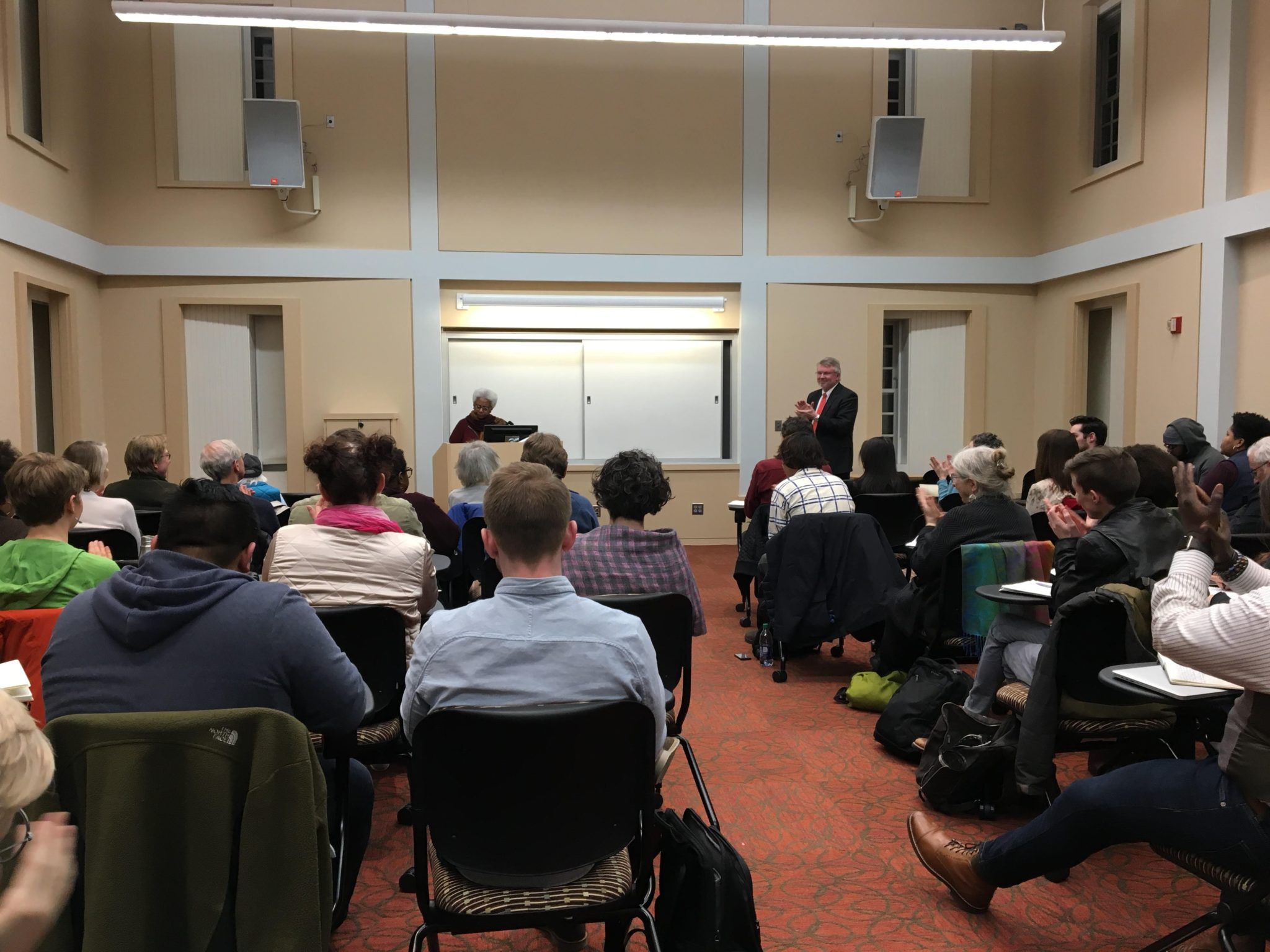
Helena Lyng-Olsen
To a crowd of over 90 people on Tuesday, M. Shawn Copeland, professor of systematic theology at Boston College, gave the first of the Divinity School’s three consecutive biennial Nathaniel W. Taylor lectures on theology.
This first lecture, titled “Theology and the Weight of the World,” addressed the role political theology has in our society today. Copeland, who is most well-known for her work in theological anthropology, political theology and African-American Catholic theology, is a former professor of the Divinity School. She was the first African-American to serve as president of the Catholic Theological Society of America.
“She opened the field for minority women to take serious the presence of the spirit in their lives,” Divinity School professor Eboni Marshall Turman said in her introduction of Copeland. “I love her.”
Copeland’s lecture outlined the ways in which social differentiation of groups in society can cause the oppression of marginalized people.
She argued that the socially oppressed are “anthropologically impoverished” because they are not recognized as human beings by the social order.
“Humanity’s fundamental unity is indifference,” Copeland elaborated. “My concern is the suffering of women, children and men, and the anemic theological response.”
Copeland sketched out the sources of “psychological weight” different groups in society bear that affect their existence.
She cited statistics of socioeconomic inequality that elicited murmurs in the audience — particularly that in 2006, the bottom half of the world population held 1 percent of its total wealth.
“The colonized person does not exist as a self,” she explained. “She exists as a rock is, but nothing more.”
While Copeland’s first lecture mainly focused on the inequality and hate in the world, her two upcoming lectures will focus on how to use theology to address these grievances. Her second talk, “Bearing Witness” will outline “the structure of compassion” that can respond to injustices in the world, while her third and final talk “Giving an Account of Our Hope,” will touch on how to maintain hope for a better future. The lectures will take place at the Yale Divinity School’s Niebuhr Hall at 5:30 p.m. tonight, Wednesday, Feb. 20, and tomorrow, Thursday, Feb. 21, respectively. A reception will follow the last lecture.
“Righteousness is like an ever-flowing stream,” Copeland stated, previewing the content of her next lecture. “One has to learn to hate — these are learned behaviors, and we can unlearn them.”
The audience was full of members of the New Haven community, professors and Divinity School students. KCM Campbell-Morrison DIV ’20 said she had read a lot of Copeland’s work and studied it in previous womanist theology classes. She added that her professors had encouraged her and her peers to go the lecture series.
Carl Washington DIV ’21 commented that he was excited to see how theology and politics could interact. Michael Libunao-Macalintal DIV ’20 expressed a similar sentiment about the intersectionality of Copeland’s work.
“As a Roman Catholic operating here at the Yale Divinity School, it is exciting to see a Catholic theologian and woman of color integral to my own theology offer the Christian community and Yale a path through the messiness of this world,” he elaborated. “It is cool to see those intersections here.”
Dean Peckham DIV ’85 said that Copeland’s thoughts on group injustices and oppression related to his work with Unidad Latina en Acción, a New Haven–based immigrant rights group, and the “hell being perpetrated on marginalized people of our own community.”
The Taylor lecture series was created in 1902.
Helena Lyng-Olsen | helena.lyng-olsen@yale.edu







